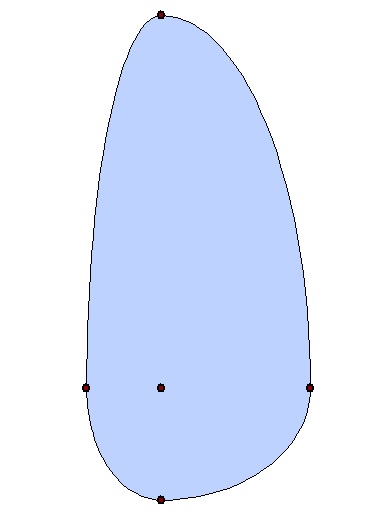Here's a solution for the trigonometry in Python (credit to my wife, who pointed out the problem was an ellipse, not a circle):
# FunkyEllipse.py
import math
n_dist=5000
e_dist=2000
s_dist=1500
w_dist=1000
distV=[n_dist,e_dist,s_dist,w_dist,n_dist]
radix=0
nverts=120 #!! Must be evenly divisible by 4!
quad=nverts / 4
step=(math.pi * 2) / nverts
stepSin = math.sin(step);
stepCos = math.cos(step);
acc1 = 1.0 # Cos(90)
acc2 = 0.0 # Sin(90)
coords = []
for i in range(0,nverts):
if ((radix % 2) == 0):
x = acc2 * distV[(radix+1)%4]
y = acc1 * distV[radix%4]
else:
x = acc2 * distV[radix%4]
y = acc1 * distV[(radix+1)%4]
coords.append([x(x,y] y))
if ((i % quad) == (quad - 1)):
radix += 1
temp = (acc1 * stepCos) - (acc2 * stepSin)
acc2 = (acc2 * stepCos) + (acc1 * stepSin)
acc1 = temp
coords.append(coords[0])
print str(coords)
Which generates a shape which looks like:

Incorporating the math in an arcpy script to copy a point featureclass to polygon is left as an exercise.
